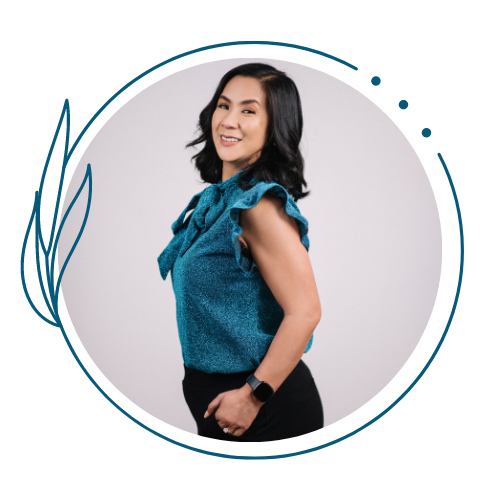Code-Switching Exhaustion? How to Be Authentic in America
I once spent an entire day at work pretending I didn’t have an accent.
Let me rephrase that: I performed Americanness for eight straight hours—tight smile, casual small talk, careful vowels. I nodded a lot. Laughed at jokes I didn’t find funny. And when I finally got home and kicked off my shoes, the first thing I said—out loud, to no one—was:
“Ugh. I’m tired of being someone else.”
If you’re a Filipino immigrant (or a child of one), you probably know this exact kind of tired. It’s the exhaustion that doesn’t come from your shift at the hospital or your back-to-back Zoom meetings. It’s the exhaustion of code-switching—that subtle, shape-shifting act of adjusting how we talk, behave, and even exist just to fit in.
It’s a skill. A survival strategy. And it’s costing us something.
The Many Faces We Wear
We’ve all done it.
You walk into a room full of Americans, and suddenly your voice softens, your tone changes, your natural rhythm slows down. Your Taglish jokes? Tucked away. Your “Ha?!” turns into “I’m sorry, can you repeat that?”
You don’t want to seem different. You want to seem… palatable.
But what happens when you spend every day trying to be palatable?
You forget what your real voice sounds like.
You start to doubt that your full, unfiltered self is enough.
And little by little, you vanish behind a curated version of you. One designed to not rock the boat. One that knows how to nod, smile, and play nice—even when your spirit wants to scream.
Why We Learned to Code-Switch
Let’s not be too hard on ourselves. We learned to code-switch for a reason.
For many of us, it was how we survived school, landed jobs, and avoided awkward stares. We wanted to be accepted. To blend in. To succeed. Our parents did it too—switching languages, accents, even dreams.
We did what we needed to do.
But now? Maybe we’re tired of the performance.
The Cost of Constant Translation
Code-switching isn’t just tiring—it’s erasing.
It teaches us that there are parts of us that don’t belong in “professional” spaces. That our accents are liabilities. That our jokes won’t land. That our cultural expressions are "too much."
But here’s the truth: Authenticity is not unprofessional. It's revolutionary.
When we show up as our whole selves—yes, with our accents, cultural references, and unique ways of seeing the world—we give others permission to do the same.
You stop shrinking.
And something incredible happens.
You begin to breathe.
How to Be More Authentically You (Even in Spaces That Don’t Always Feel Safe)
1. Start small, but start. Maybe it’s sharing a story from your childhood in a meeting. Maybe it’s not changing your lunch so it won’t “smell weird.” Maybe it’s allowing your natural laugh to bubble out instead of muting it.
2. Find your people. You don’t need everyone to get you. Just a few people who do. Seek out colleagues, friends, or mentors who celebrate—not just tolerate—your full self. They’re out there. Build your circle.
3. Reclaim your voice. Literally and metaphorically. Your accent is not something to hide. It’s the sound of two cultures blending into something uniquely you. Speak with pride.
4. Give yourself grace. Some days you’ll still find yourself code-switching without even realizing it. That’s okay. Be gentle with yourself. You’ve been trained to survive. But now, you’re learning to belong—to yourself, first and foremost.
You Don’t Need to Perform to Be Worthy
You were never meant to be a filtered version of yourself.
You are not “too much.” You are not “unprofessional.” You are not “other.”
You are powerful, layered, and real. And real is enough.
So if you're feeling the weight of code-switching exhaustion, here's your permission slip:
Let it go—just for a moment. Try being you, exactly as you are. No translation. No performance. Just the real, vibrant, whole version.
You might be surprised how freeing it feels.
And trust me—your voice, your culture, your presence?
They’re not just welcome.
They’re needed.
Sign up for my free newsletter, usually sent once a month (and sometimes more often when inspiration strikes!). These are letters from my heart, filled with insights from my personal journey and client work, honest talk about life, and practical tools for managing self-doubt, tapping into inner wisdom, and embracing personal growth.
If you're seeking greater empowerment, satisfaction, and self-confidence, my newsletter will offer a steady source of inspiration, encouragement, and support







